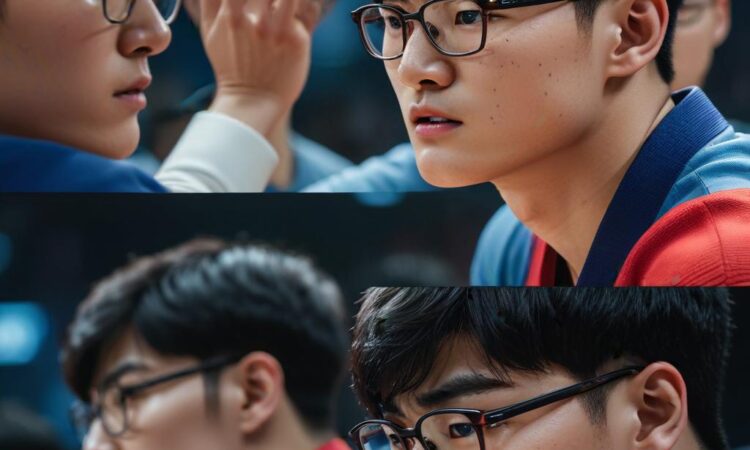The Debate Surrounding Faker’s Controversial In-Game Decision in League of Legends
Okay, let’s talk about it. Faker, the undisputed GOAT of League of Legends, did something *wild* in his recent match against T1’s rivals. During a crucial team fight, with the Nexus about to crumble, he seemingly threw the game. Instead of focusing on securing the win, he went full-tilt-boogie into a side lane, farming minions while his team got absolutely wrecked. The internet, predictably, exploded.
Some folks are saying it was a calculated risk, a bizarre strategy he pulled out of his legendary hat. They’re pointing to his legendary status, his history of unconventional plays that have paid off massively, and arguing that maybe, just maybe, he saw something the rest of us didn’t.
Others, however, are less charitable. They’re calling it reckless, unprofessional, and downright disrespectful to his team. There’s talk of him possibly being tilted, throwing a tantrum on the Rift, or even – *gasp* – griefing. The accusations are flying fast and furious, fueled by the sheer shock of seeing the greatest player in the world seemingly throw a game.
The community response has been, to put it mildly, intense. Reddit threads are ablaze with hot takes, ranging from fervent defense to outright condemnation. Twitter is a chaotic mess of memes, angry tweets, and heated debates. Even Twitch streamers are weighing in, with some offering measured analysis while others engage in full-on outrage.
This incident brings up some serious questions about the ethical boundaries in professional esports. What constitutes acceptable behavior in-game? Are there situations where individual brilliance trumps teamwork? What are the responsibilities of a superstar player, not just to their team but to the entire community?
The League of Legends community is grappling with these questions, and it’s a messy, complex discussion. There are arguments for stricter regulations, perhaps harsher penalties for perceived throwing or unprofessional conduct. Some are calling for a clearer definition of what constitutes “acceptable risk-taking” versus outright griefing. Others are defending Faker’s right to play his own game, arguing that policing creativity and individuality stifles the very spirit of competition.
There’s also the issue of the potential impact on sponsors, viewership, and the overall image of the esports scene. A high-profile player acting in a controversial manner can damage the reputation of the entire game, affecting its growth and long-term sustainability. This incident highlights the importance of robust ethical guidelines, clear codes of conduct, and consistent enforcement of those rules.
Ultimately, Faker’s actions, however unintentionally controversial, have ignited a vital discussion within the League of Legends community. It’s a discussion about sportsmanship, accountability, and the evolving definition of professionalism in competitive gaming. It’s a discussion that needs to happen, even if it’s messy and uncomfortable.
This isn’t just about one player’s actions; it’s about the future of competitive integrity and the expectations we place on those who represent the game. The debate surrounding this incident will likely shape the conversations about player behavior and league regulations for years to come. It forces us to reconsider the line between calculated risk, bold strategy, and unacceptable conduct. This incident reminds us that the world of professional esports, despite its impressive growth, is still evolving its ethical guidelines and systems for accountability. The fallout from this will undoubtedly inform the way future incidents are handled, and hopefully, help to solidify a clearer code of conduct for all players in the years to come.
What are your thoughts? Let the debate continue in the comments below!

